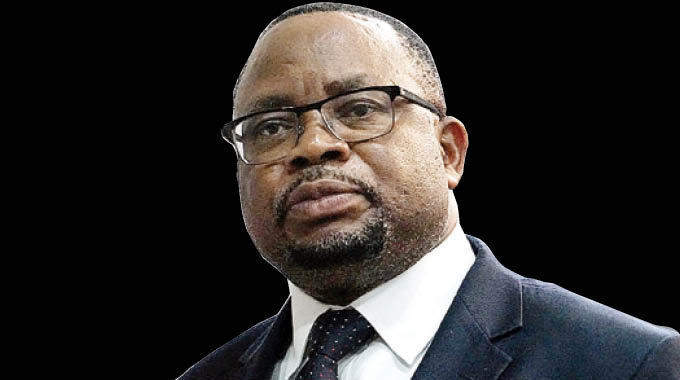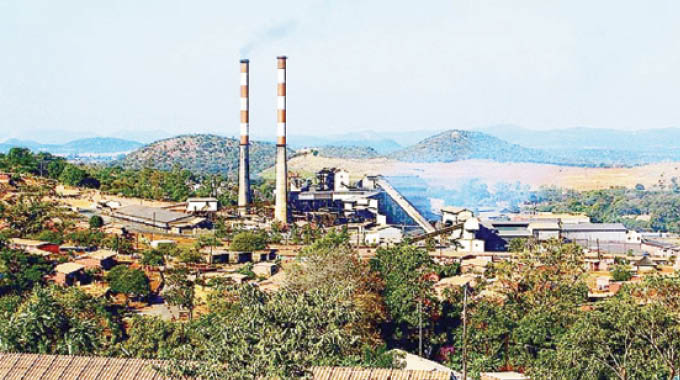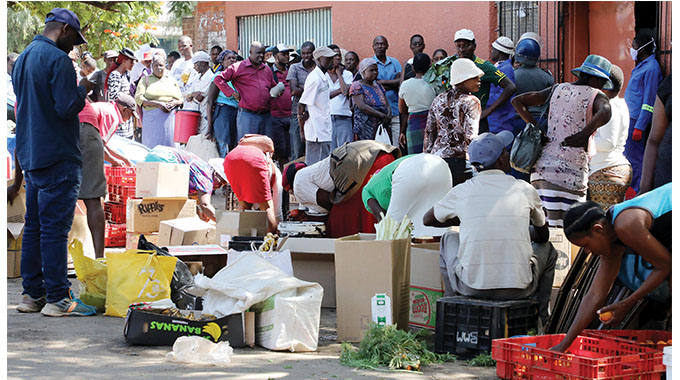Govt strengthens social protection

Elita Chikwati and Talent Chimutambwi, Harare Bureau
Up to 10 million Zimbabweans will need social protection help before the next harvest after two years of successive drought and swathes of the informal sector fully or partially closed because of the Covid-19 pandemic and associated lockdowns.
The Government has been working on strengthening social protection systems, with its Covid-19 allowances complementing normal food aid programmes, and has called on the local and international partners to complement its efforts in assisting vulnerable communities.
Government estimates are that between 8 – 10 million people will require social protection during the coming peak hunger season.
This came out last week when the Ministry of Public Service, Labour and Social Welfare and World Vision renewed their Memorandum of Understanding.
The agreement guides the World Vision in implementing their projects across the country. World Vision has for the past 47 years been implementing different social services in water and sanitation health, child protection and food assistance, education and strengthening capacity for rural households among other humanitarian projects.
Speaking at the signing ceremony, Public Service, Labour and Social Welfare Minister Paul Mavima said Government took the issue of providing social protection seriously and Zimbabwe was among the leaders in Africa in providing comprehensive social support through social welfare interventions to vulnerable people.
“We assist people through National Social Security Authority (NSSA) and welfare interventions such as food assistance to vulnerable people on a permanent basis, assistance to people with disabilities, those who cannot afford education and elderly and children.
“We are working on how we can strengthen our social protection. Social protection should also go to the informal sector. They will be providing by way of workers’ compensation and pension. We have started on how we should implement that. We hope to register the informal sector with NSSA,” he said.
Minister Mavima said the renewal of the agreement had come at a time when the country was at war against Covid-19 where the need for social services was more apparent.
“We are now feeding 210 000 people who require assistance. Currently we are helping with cash transfers to be reviewed to remain reasonable.
“There has been an increase for the need of social services as the informal sector has been forced to close because of the lockdown, but need for sustenance remains for companies, employees and families. In the next peak hunger period, we probably will be feeding between 8 to 10 million people as we have had successive droughts. The situation has been made worse by Covid-19,” he said.
The Minister called upon more partners to assist in feeding people affected by the pandemic.
He applauded World Vision for its efforts in complementing Government in humanitarian work, health, education, food and nutrition and water and sanitation and hygiene.
“For the past season where we had drought they were in partnership with the World Food Programme in Buhera, Mudzi, Insiza, Hwange and Lupane among other areas in 10 districts.World Vision Acting national director Mr Davison Mauwa the organisation had a long-standing relationship with Government in providing social services.
“As of 2020 we have supported more than 1,2 million. We have with food assistance in areas such as Mudzi, Buhera, Lupane among other districts. In Bulawayo we are providing 1 110 litres of water every day.
Meanwhile, the World Food Programme has appealed for more funds to assist the vulnerable people in Zimbabwe. With Covid-19 aggravating an already severe hunger crisis in Zimbabwe, the United Nations World Food Programme appealed for an additional US$250 million to support a rapidly expanding emergency operation for millions at risk.










Comments